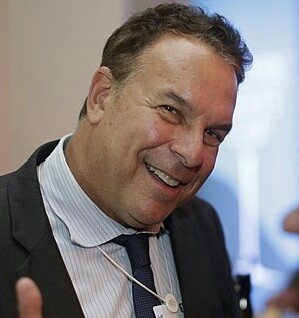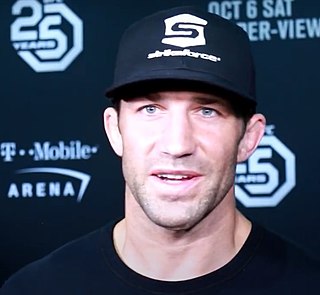A Quote by Dan Ariely
If you have loans, the first thing you want to do is say, "Okay, look I have a credit card, if I really need to borrow, I have this emergency money that I can get, but for now there is no reason for me to keep cash at zero percent interest rate and at the same time, pay all of this money out. So, I think people need to figure out quickly how to pay loans and how much cash they should really keep.
Related Quotes
A consolidation makes sense only if you can lower your overall interest rate. Many people consolidate by taking out a home equity line loan or home equity line of credit (HELOC), refinancing a mortgage, or taking out a personal loan. They then use this cheaper debt to pay off more expensive debt, most frequently credit card loans, but also auto loans, private student loans, or other debt.
Imagine you have six loans, small to huge. People want to close loans and because of that, they try to pay off the small loans, but that's not the right strategy. The right strategy, of course, is to pay the loan with the highest interest rate. People make this mistake and it costs them lots and lots of money, it's a very expensive mistake because interest rates accumulate and become very, very expensive very quickly.
The goal of a private company is, first, zero to one. Get past the product market fit, figure out whether people actually care about what you're trying to build and someone will pay you money for that. That's the zero to one problem. So scaling, one through N, is figuring out can you do that at scale and how big is the scale. And when people pay you more than what it costs for you to make it, does that equation end up leaving you with money left over, i.e. profits.
Under the old system - which is now so archaic that a lot of people can't remember it - if you wanted money you had to go to the bank and take the money out in cash form, and you couldn't take out money that you didn't have. But with the credit card you can spend money you don't have, and that is just so tempting.
The most absurd public opinion polls are those on taxes. Now, if there is one thing we know about taxes, it is that people do not want to pay them. If they wanted to pay them, there would be no need for taxes. People would gladly figure out how much of their money that the government deserves and send it in. And yet we routinely hear about opinion polls that reveal that the public likes the tax level as it is and might even like it higher. Next they will tell us that the public thinks the crime rate is too low, or that the American people would really like to be in more auto accidents.
If you want to spend more money in restaurants, use credit cards more than cash. If you want to spend less, use cash more than credit cards. But in general, we can think about how to use the pain of paying and how much of it do we want. And I think we have like a range. Credit cards have very little pain of paying, debit cards have a little bit more because you feel like today, at least it is coming out of your checking account, and cash has much more.
Why, just a couple of economic seasons ago, was idle cash considered an indication of bad management or lazy management? Because it meant that management didn't have this money out at work ... Now look. Presto! A new fashion! Cash is back in! Denigrating liquidity has dropped quicker than hemlines. A management is now saluted if it has some cash, some liquidity, doesn't have to go to the money market at huge interest rates to get the wherewithal to keep going and growing. Along with Ben Franklin, my father and your father would understand and applaud this new economic fashion.
If you have to pay about forty to forty-three percent of your income for housing, you also have to pay fifteen percent of your paycheck for the FICA for Social Security wage withholding. You have to pay medical care, you have to pay the banks for your credit card debt, student loans. Then you only have about twenty-five or thirty-five percent, maybe one-third of your salary to buy goods and services. That's all.
Well, outside of the tone, the big thing that I gained from working on horror film was how to shoot really quickly with no money. I learned how to be able to go into a production and know exactly what shot I need to get and how the shot needs to look and what performance I need to get out of the talent at a very quick pace.


































